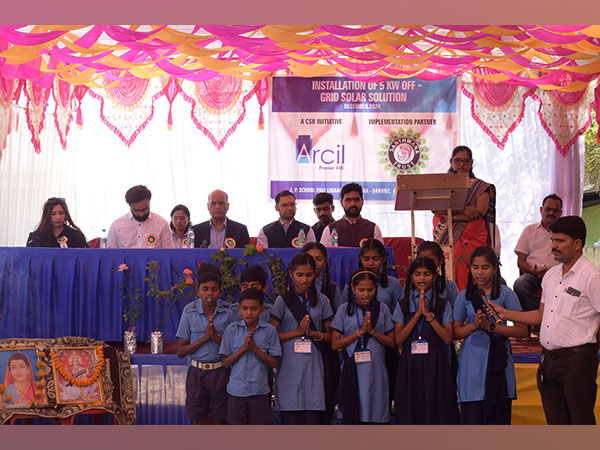Arcil Empowers Rural Education with Key Infrastructure Projects
Asset Reconstruction Company (India) Ltd. (Arcil) has launched two projects to enhance educational infrastructure in Dahanu, Palghar. These initiatives focus on improving sanitation and installing solar systems in schools, aiming to uplift community engagement, promote sustainable practices, and improve educational experiences for rural students.

- Country:
- India
BusinessWire India Mumbai (Maharashtra) [India], December 26: Asset Reconstruction Company (India) Ltd. (Arcil) has rolled out two pivotal projects to bolster educational infrastructure in Dahanu taluka, Palghar district. Collaborating with NGOs Kokan Kala Va Shikshan Vikas Sanstha and Santhwana Trust, these CSR efforts focus on upgrading sanitation facilities and implementing solar energy solutions in local government schools.
The first initiative targets the Savate Zilla Parishad School, serving 343 students, where inadequate hygiene facilities have posed health risks and attendance issues. The newly installed toilet facilities aim to elevate health standards, enhance student attendance, and provide essential privacy for female students. This includes a sanitary napkin vending machine to support menstrual hygiene management.
Complementary to this, Arcil has facilitated the installation of solar energy systems in five schools of the Dahanu region. This initiative strives to ensure reliable electricity, fostering an enhanced learning environment by reducing reliance on conventional power sources and promoting sustainability. Key equipment like computers and lighting now operate on solar energy, enhancing educational resources for students.
CEO and MD of Arcil, Mr. Pallav Mohapatra, emphasized the significance of these initiatives, highlighting their role in empowering youth and fostering resilient communities. He underscored that improving educational infrastructure is an investment in the future of children.
Beyond infrastructure, these projects foster community involvement by encouraging local participation in maintaining and managing new facilities, reflecting a commitment to long-term sustainability. The initiatives align with Sustainable Development Goals, focusing on quality education, gender equality, and health, and contribute to broader economic and social progress in rural areas.
(With inputs from agencies.)










